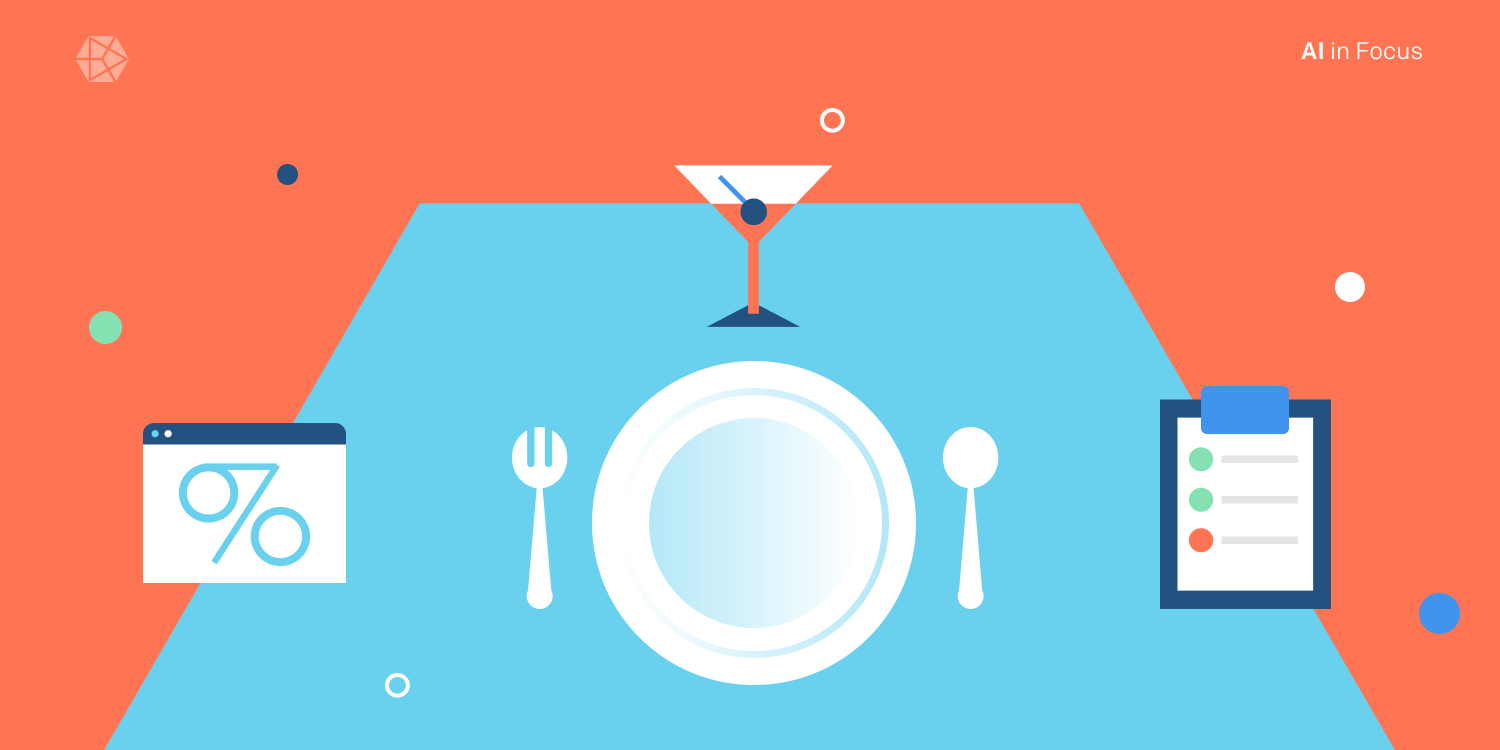
As consumer tastes evolve, it’s no longer good enough for food to simply be tasty — consumers are regularly seeking out products that are fresher, healthier, trendier, and more ethically sourced than ever before. Investing in the wrong quantity or quality of food products could have a meaningful impact on a restaurant’s razor-thin margins. F&B companies are increasingly adopting artificial intelligence to help them adjust to and accommodate the evolving consumer.
There’s a reason that the use of AI in F&B is expected to grow 42 percent through 2021: AI can greatly help ensure food quality and safety, accurately forecast purchase orders, and help meet changing consumer demands.
Based on our client work, here’s a look at some of the primary ways F&B companies are beginning to leverage AI.
Supply Chain Management
Manufacturing products for F&B companies is a never-ending challenge, but thanks to AI, the entire supply chain is being transformed from start to finish. From assisting in food preparation at manufacturing facilities to creating shelf-ready CPGs, AI is helping build a F&B supply chain that’s faster, fresher, and more agile. At food manufacturing facilities, AI is being utilized to help automatically sort, clean, and dispose of products like fruits and vegetables.
Time-consuming and costly manual labor can now be automated using a series of lasers, IR cameras, and sensors. These improved monitoring abilities can help reduce millions of tons of food waste, helping companies save money and cut down on inventory once considered unusable.
Headline-grabbing food safety outbreaks from chain restaurants like Chipotle and food products like Kellogg’s Honey Smacks illustrate the growing need for healthy, clean, and safe food manufacturing. AI-assisted quality assurance is one of the best guardians of food safety, ensuring that the F&B industry is making manufacturing decisions that are in the consumers’ health interests.
Food safety and quality can be more accurately monitored using Industrial Internet of Things (IIoT) devices, supported by vast arrays of sensors, wireless devices, and cloud technology. AI-enabled cameras can watch employees to ensure proper food safety procedures are being followed.
Last year, Cornell University and IBM launched an AI-powered food safety initiative to identify food hazards in milk products. By taking advantage of AI to monitor potential issues through every step of the supply chain, food manufacturing will become safer, healthier, and more efficient.
Inventory Management
Accurate inventory management is a cornerstone of the F&B industry, ensuring shelves are stocked with the equipment, ingredients, and supplies necessary to run an efficient and profitable business. In the past, grocery stores and restaurants estimated the size of purchase orders by manually sifting through inventory and sales data in order to keep shelves stocked. For busy seasons like Thanksgiving, incomplete or obsolete data increased the likelihood of over- or under-stocking.
AI helps remove the guesswork from inventory management. Strategies like intelligent forecasting can utilize sales data, consumer behavior, and seasonal information to accurately predict how to keep shelves stocked. Data can also be leveraged to help optimize pricing and merchandising, suggesting sales promotions and the best locations for items on store shelves.
Predicting Customer Taste & Behavior
Across many industries, AI is being used to leverage customer engagement, utilizing consumer behavior data for critical decision-making. F&B is no different — since the industry is driven very directly by consumer tastes, it can harness AI to reach new levels of prediction and personalization. Companies looking to launch new food or beverage products take on great amounts of risks before bringing them to market.
From development to product testing, countless resources can be devoted to products only to ultimately be rejected by a market of fickle consumers. AI can mitigate these risks by predicting consumer flavor and taste preferences.
For example, using data collected from its choose-your-own-flavor Freestyle soda fountain, Coca-Cola was able to launch an already-popular Cherry Sprite product because AI knew consumers were already making it themselves. Consumers can also be further engaged through AI-based customer loyalty programs.
Rather than simply scanning a card at the checkout for a discount, loyalty programs fueled by AI can analyze past purchases and consumer behavior to offer customers highly relevant promotions. By taking advantage of AI’s ability to learn consumer habits and behaviors, businesses can personalize product offers and shopping experiences that best align with customer desires.
Final Thought
AI implementations in the Food & Beverage industry are already saving vast amounts of time and money. As companies begin to collect more data on both their manufacturing processes and customer behaviors, AI will be able to leverage this additional information to fine-tune efficiencies in the supply chain and better accommodate consumer tastes. And AI is still in its infancy. As the industry learns more about the varied ways to deploy this powerful tool, expect to see innovation, capability, and competition increase exponentially.
